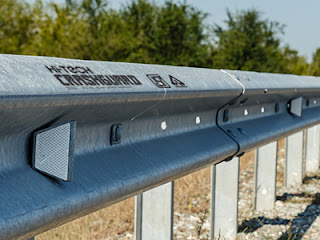Understanding Steel Pipes
Steel pipes are one of the most versatile and essential components in various industries. From construction to manufacturing, and from transportation to energy, steel pipes play a crucial role in ensuring the smooth functioning of modern infrastructure. In this blog post, we’ll dive into what makes steel pipes so indispensable, their various types, applications, and why they continue to be a preferred choice in numerous sectors.
What are Steel Pipes?
Steel pipes are cylindrical tubes made from steel, designed to convey liquids, gases, and even solids. They are known for their strength, durability, and resistance to extreme conditions, making them ideal for a wide range of applications. The most common materials used in steel pipe production include carbon steel, stainless steel, and alloy steel, each offering specific properties suited to different uses.
Types of Steel Pipes
Steel pipes come in various types, each tailored to specific needs and environments:
Carbon Steel Pipes: These are made from carbon steel, known for their strength and ability to withstand high pressure. They are commonly used in the transportation of oil, gas, and water.
Stainless Steel Pipes: Known for their corrosion resistance, stainless steel pipes are often used in environments where exposure to moisture, chemicals, or high temperatures is common. They are frequently employed in industries such as food processing, pharmaceuticals, and chemical processing.
Alloy Steel Pipes: These pipes are made by combining steel with other elements like chromium, nickel, and molybdenum, enhancing their strength, toughness, and resistance to wear and corrosion. They are typically used in high-stress applications, such as power plants and heavy machinery.
Galvanized Steel Pipes: These are carbon steel pipes that have been coated with a layer of zinc to protect them from corrosion. They are often used in outdoor and industrial environments where rust is a significant concern.
Applications of Steel Pipes
Steel pipes are integral to various industries due to their versatility and reliability. Some of the key applications include:
Oil and Gas Industry: Steel pipes are extensively used in the oil and gas sector for the transportation of crude oil, natural gas, and refined products. Their ability to withstand high pressure and harsh environmental conditions makes them ideal for this purpose.
Construction Industry: In construction, steel pipes are used for structural support in buildings, bridges, and other infrastructure projects. They are also utilized in plumbing and electrical conduits.
Automotive Industry: Steel pipes are used in the manufacturing of various automotive components, including exhaust systems, chassis, and drive shafts, due to their strength and durability.
Water Supply Systems: Steel pipes are a critical component of water supply and distribution systems, providing a reliable means of transporting water across long distances.
Mechanical Engineering: In mechanical engineering, steel pipes are used in the production of machinery and equipment that require high-strength materials capable of withstanding significant stress and wear.
Advantages of Steel Pipes
Steel pipes offer several advantages that make them a preferred choice across industries:
Strength and Durability: Steel pipes are incredibly strong and durable, capable of withstanding high pressures, heavy loads, and extreme temperatures.
Corrosion Resistance: Certain types of steel pipes, like stainless and galvanized steel, offer excellent resistance to corrosion, extending their lifespan and reducing maintenance costs.
Versatility: Steel pipes can be customized to suit various applications, whether it's for carrying fluids, gases, or solids, or providing structural support.
Cost-Effectiveness: Despite their strength and durability, steel pipes are cost-effective, offering a long service life with relatively low maintenance requirements.
Conclusion
Steel pipes are a cornerstone of modern industry, providing essential services in sectors ranging from energy to construction. Their strength, durability, and versatility ensure that they will continue to be a vital component of infrastructure projects worldwide. Whether you’re building a skyscraper, laying an oil pipeline, or constructing a bridge, steel pipes are likely at the heart of your project, offering reliability and performance that few other materials can match.
More Read: Steel Pipes

Comments
Post a Comment